Community
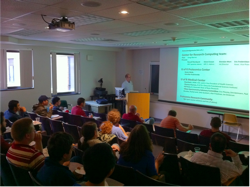
Monthly CIRC Symposia
Every third Friday of the month, the Center for Integrated Research Computing hosts a research symposium (known as the CIRC Symposium), where faculty, staff, and student researchers convene to learn about research projects utilizing the center’s resources, meet potential collaborators, and learn about new technologies and trends in research computing. This event is user-driven and features presentations by researchers using CIRC systems. CIRC Symposia are open to all members of the university community and a complimentary lunch is provided.
The Center for Integrated Research Computing (CIRC) will host a symposium on Friday, November 17th from 11:30 a.m. to 1:00 p.m. in Wegmans 1400. This month’s featured speaker is Yasemin Basdogan from the Department of Chemical Engineering. Yasemin’s talk will feature the use of machine learning for discovering polymer membranes for carbon dioxide separation. We will also have a short technical talk provided by Tod Romo. He will be demonstrating some best practices when installing and setting up Python packages for scientific applications. Please see the titles and abstracts below
Machine Learning-Guided Discovery of Polymer Membranes for CO2 Separation
Yasemin Basdogan, PhD
Department of Chemical Engineering
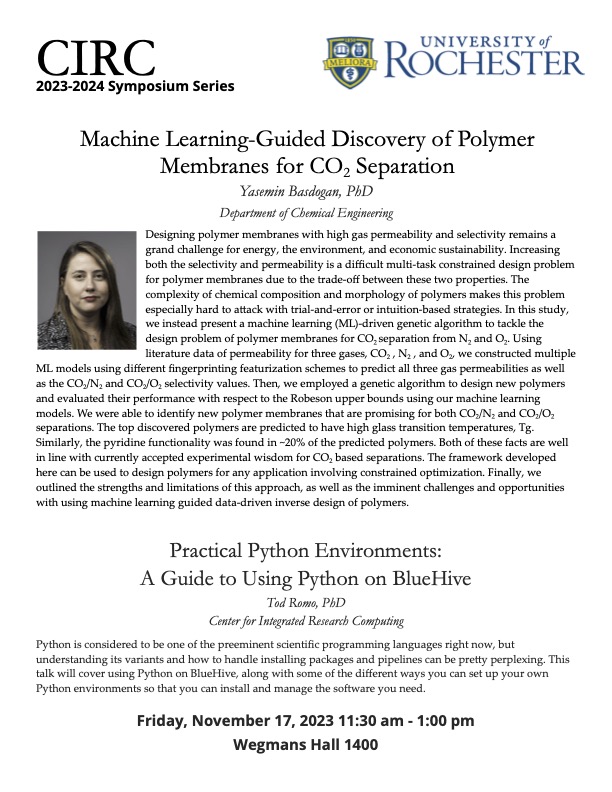
Designing polymer membranes with high gas permeability and selectivity remains a grand challenge for energy, the environment, and economic sustainability. Increasing both the selectivity and permeability is difficult multi-task constrained design problem for polymer membranes due to the trade-off between these two properties. The complexity of chemical composition and morphology of polymers makes this problem especially hard to attack with trial-and-error or intuition-based strategies. In this study, we instead present a machine learning (ML)-driven genetic algorithm to tackle the design problem of polymer membranes for CO2 separation from N2 and O2. Using literature data of permeability for three gases, CO2, N2, and O2, we constructed multiple ML models using different fingerprinting featurization schemes to predict all three gas permeabilities as well as the CO2/N2 and CO2/O2 selectivity values. Then, we employed a genetic algorithm to design new polymers and evaluated their performance with respect to the Robeson upper bounds using our machine learning models. We were able to identify new polymer membranes that are promising for both CO2/N2 and CO2/O2 separations. The top discovered polymers are predicted to have high glass transition temperatures, Tg. Similarly, the pyridine functionality was found in ~20% of the predicted polymers. Both of these facts are well in line with currently accepted experimental wisdom for CO2 based separations. The framework developed here can be used to design polymers for any application involving constrained optimization. Finally, we outlined the strengths and limitations of this approach, as well as the imminent challenges and opportunities with using machine learning guided data-driven inverse design of polymers.
Practical Python Environments: A guide to Using Python on BlueHive
Tod Romo, PhD
Center for Integrated Research Computing
Python is considered to be one of the preeminent scientific programming languages right now, but understanding its variants and how to handle installing packages and pipelines can be pretty perplexing. This talk will cover using Python on BlueHive, along with some of the different ways you can set up your own Python environments so that you can install and manage the software you need.
Information about previous CIRC Symposia is available.
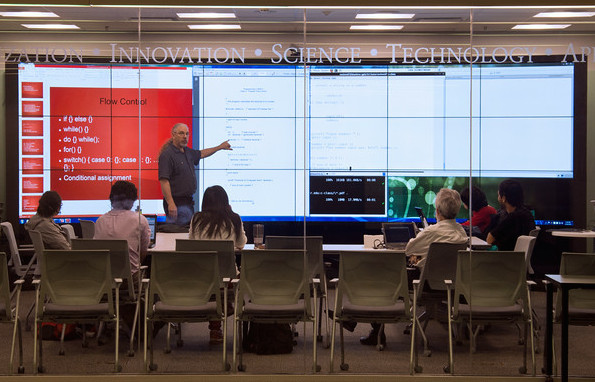
CIRC Summer School
Every summer, CIRC hosts a four-week training session on various operating systems, programming languages, computational programs and libraries, and data analytics tools for the research community. Known as the “CIRC Summer School,” these workshops are broken down into individual topics and feature small, interactive, classroom-based instruction sessions. Topics range from basic training in Linux to optimizing codes for parallel computing. The courses are designed for beginner and advanced users alike. Extra emphasis is placed on using the various available languages, libraries, etc., specifically on BlueHive.
Check again soon for an announcement about the next Summer School!
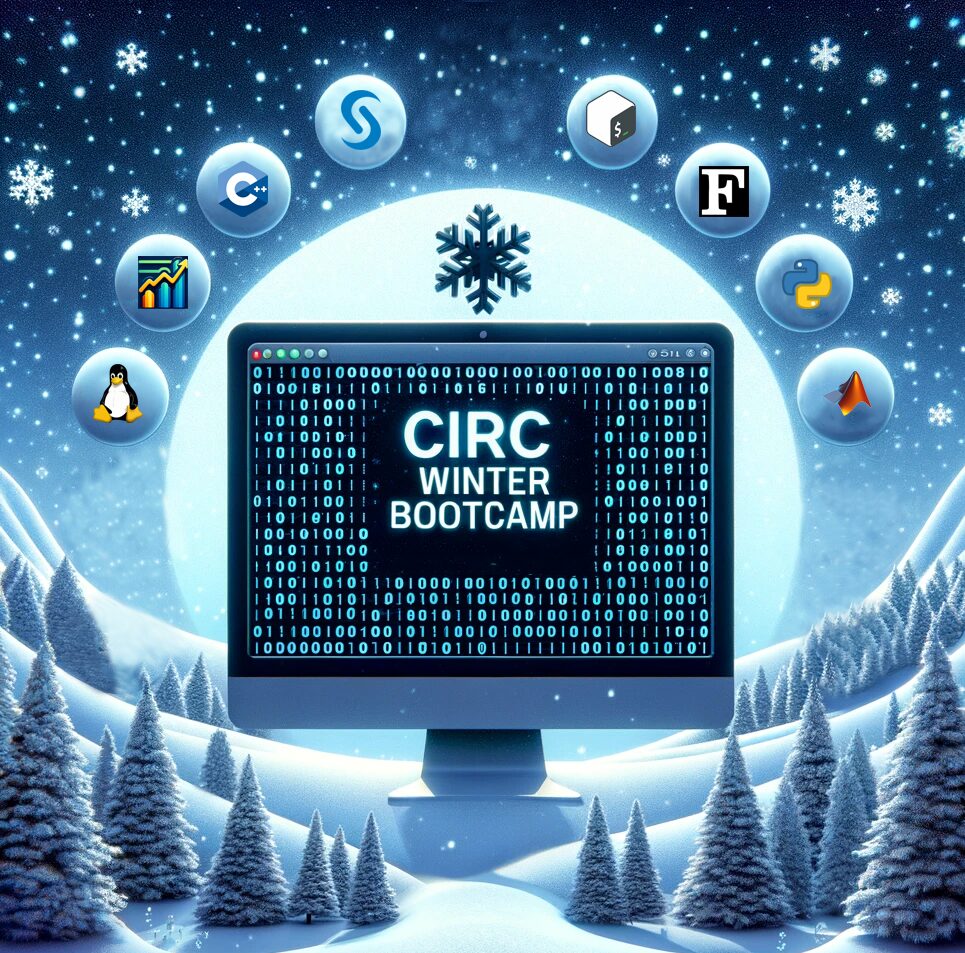
CIRC Winter Boot Camp
Have you ever wanted to learn how to program or add a new programming language to your existing knowledge? Have you been looking for the right time to pick up a few essential technical computing skills to help with your research projects or course work? Well, now you have the opportunity during the CIRC Winter Boot Camp!
The Center for Integrated Research Computing (CIRC) hosts a multi-week winter program to help students, postdocs, research staff, and faculty learn new programming languages and sharpen their computing and data analytics skills. The classes are designed for beginners and cover basic topics to give enough direction to move on to self-learning tutorials or other more advanced coursework.
Check again soon for an announcement about the next Winter Bootcamp!
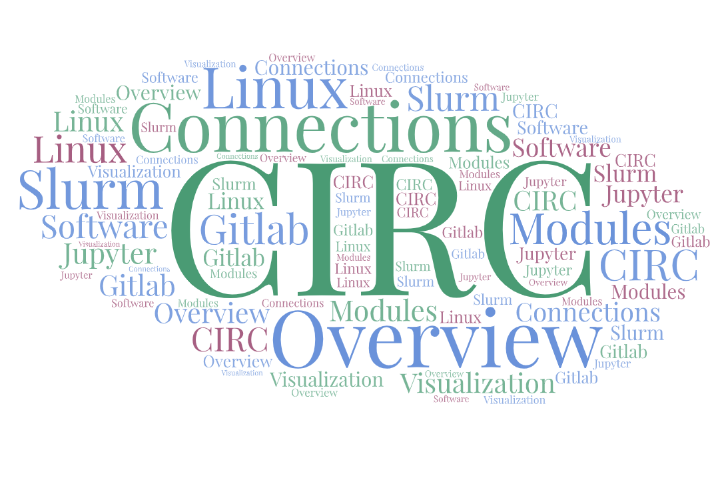
CIRC Workshops
The Center for Integrated Research Computing (CIRC) offers workshops every Spring and Fall that introduce users to the BlueHive computing environment and other computing resources that CIRC supports. The workshops include sessions in the morning targeted for new and beginning users, and afternoon sessions covering a few more in-depth topics and tools and applications that are available to the research community.
If you would like more information, please contact CIRC or follow the link below.
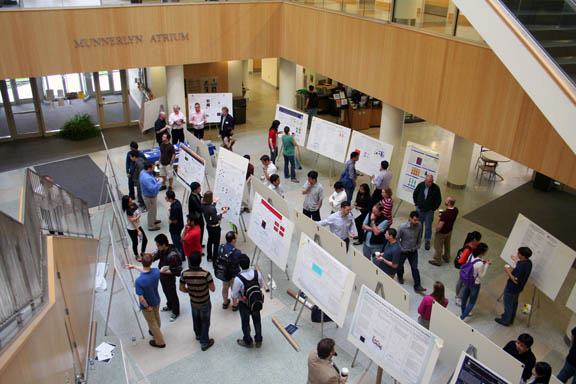
Annual CIRC Poster Session
The Center for Integrated Research Computing holds the Annual CIRC Poster Session at the end of each Spring semester. At this event, attendees discover the wide range of research that is enabled by computation and displayed to the University community. This event provides an informal venue to share computational and data analytics techniques and methodologies with colleagues from a wide variety of disciplines.
Check again later for an announcement about the next CIRC Poster Session!
